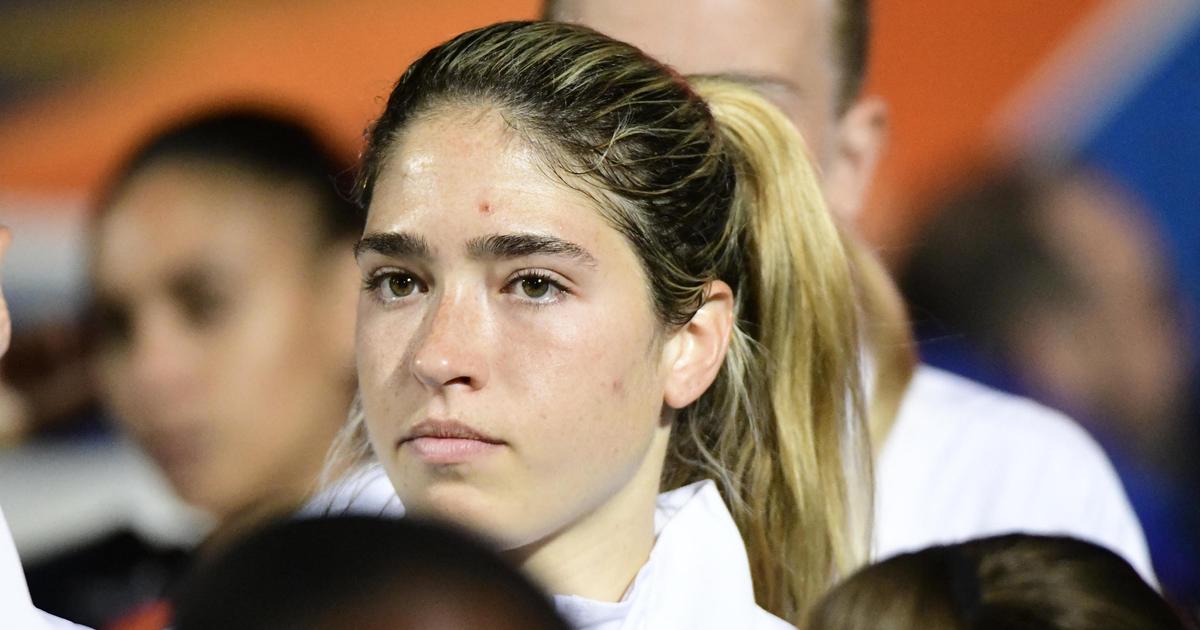The infamous conversion therapy for LGBTQ children has been banned in Utah, which becomes the 19th state to do so and one of the most conservative in vetoing this practice.
Supporters sailed down a winding road to this triumph and some dissent remains, but preventing it in Utah could drive similar efforts in other states of right-wing inclination, said Shannon Minter, legal director of the National Center for Lesbian Rights.
"It has really given people a lot of hope," said Minter, whose group has pushed to ban this practice across the United States. Virginia is considering a ban, and the issue could also arise this year in Texas and Kentucky, he said.
The change in Utah comes after the state developed a regulatory rule that was supported by the influential Church of Jesus Christ of Latter-day Saints. The leaders had opposed an earlier version because they did not have certain exceptions for the clergy.
Utah Governor Republican Gary Herbert took the unusual step of calling regulators after a proposed law was derailed by changes made by conservative lawmakers. State officials confirmed that the rule became final this Tuesday night.
The original sponsor of the proposal, Republican Craig Hall, applauded the entry into force of the standard and said in a statement that it prohibits dangerous practices and protects health professionals. "This measure will really save lives," he said.
Conversion therapy is a practice used to try to change sexual orientation or gender identity. Many people who have suffered it say they deepened their feelings of depression and increased their suicidal thoughts. The new rule prohibits Utah therapists from submitting LGBTQ minors to practice that, according to the American Psychological Association, is not based on science and is detrimental to mental health.
Still, the ban has caused a setback in Utah. Opponents argued that it would prevent parents from receiving help for children with "unwanted" homosexual feelings and prevent therapists from even talking about sexuality with their children. The rule could become a problem during the 2020 legislative session.
Utah's prevailing faith, widely known as the Mormon church, opposes same-sex marriage and teaches that intimate relationships between same-sex people are a sin. But it also urges members to be kind and compassionate with LGBTQ people. Religion has tremendous influence in Utah, where most state legislators and almost two-thirds of the 3.1 million residents of the state are members.
The faith supported the ban on conversion therapy after supporters included assurances that church leaders and members who are therapists could provide spiritual advice to parishioners or families.
Suicide risk
Part of the reason why conversion therapy was banned in Utah, a "great achievement" according to Troy Williams, executive director of the LGBTQ non-profit organization Equality Utah, who previously described the state as an "impact zone" for The practice is the state's tragically high youth suicide rate, according to The Newsweek .
In 2018, suicide was the leading cause of death among youth in Utah, and between 2011 and 2015, young rates of 10 to 17 years who ended their lives increased 141.3%, compared to 23.5% nationwide, according to the Utah Department of Health. During that period, 150 young people committed suicide. After an investigation, the body concluded that "suicide is complex" and that a variety of factors can protect children or put them at risk.
"Obviously, there are multiple reasons for this increase," says Williams, "so there must be multiple solutions. Ending conversion therapy is one of them," he said.
A study published last year in the Journal of the American Medical Association found that transgender people who underwent this practice while they were less than 10 years old were four times more likely to attempt suicide for life than the general transgender population. LGBTQ youth who have undergone conversion therapy are 52% more likely to develop depression and 62% more likely to try to die from suicide, research suggests. These problems fade into adulthood, and survivors are more likely to have a lower socioeconomic status, to feel satisfied and have social support.
Shannon Minter, legal director of the National Center for Lesbian Rights, who runs the Born Perfect campaign to end conversion therapy in the US. UU., Believes that the emergence of Utah as the most conservative state to ban the technique shows that attitudes toward practice are changing. This is partly because organizations such as Equality Utah build bridges with conservative legislators, church officials and leaders by emphasizing shared values, mutual respect and the willingness to participate in extended dialogues to reach common ground, says Minter.
"In the past, the Church of Jesus Christ of Latter-day Saints [in Utah] advocated conversion therapy and encouraged parents to send their children to conversion therapists," Minter explained. "But as more and more evidence emerged that conversion therapy not only does not work, but causes very serious damage, the church reviewed its position and now condemns such practices as abusive. This is a revolutionary change, and this change He was critical of the adoption of the new policy that protects young people from conversion therapy, "he added.
Minter argues that the campaign to protect young people from conversion therapy is "by far" the most successful defense initiative of the LGBTQ movement since the fight for equality in marriage, which focused on the importance of love, commitment and families: "Values that are widely held by most Americans."
"Even in the midst of the polarized political landscape in the US, which has led to the enactment of federal or state laws against discrimination for LGBTQ people, we have seen remarkable bipartisan legislation progress in the protection of young people from drug therapy. conversion, "he said.
Most states in the US UU. they still don't have laws against this treatment, and the states that accept LGBT people the most are the ones most likely to pass the bans on conversion therapy, said Dr. Jack Turban, co-author of the Journal of the American Medical study. Association: "It is also the States where people are less likely to practice conversion therapy because people in that state recognize their dangers," Turban said.
But 2019 saw a lot of efforts to repress it across the country. California opened the way in 2012, when it became the first state to ban conversion therapy, followed by New Jersey in 2013. Since then, 19 states plus the District of Columbia and Puerto Rico, as well as dozens of locations have introduced restrictions Similar: all belonging to minors.
Last year, the jurisdictions of New Hampshire, New York, Massachusetts, Colorado and Maine banned conversion therapy, and the governor of North Carolina, Roy Cooper, signed an executive order against him. Bills were also presented in more than a dozen states, including Arizona, Georgia and Nebraska.
Last fall, the American Medical Association announced that it would support a federal ban, stating that conversion therapy not only does not have a scientific basis, but also triggers depression and post-traumatic stress disorder, as well as suicidal thoughts and attempts.
When the Utah bill was introduced last February, Republican State Senator Daniel McCay, who according to the Associated Press acknowledged that he was not a typical sponsor for such a measure, said: "We want each of you to be part of the future." . We don't want to lose them. "
Unfortunately, the legislation was filed after the House Judicial Committee voted in favor of an altered substitute bill, which sparked a "tremendous protest from the LGBTQ community and mental health associations," says Williams.
Governor Herbert responded by instructing the Utah Board of Psychologists to draft an administrative rule for adoption, which used the language of the original bill and would not need the approval of legislators. As a result, as of Wednesday, any state-licensed mental health therapist who submits a child to conversion therapy runs the risk of facing disciplinary proceedings by one of the state's mental health licensing boards, and could face punishment such as suspension and revocation of your license.
Read also:
Homosexual and transgender migrants report abuse and harassment at ICE center in New Mexico
“My quality of life improves today”: more than 1,000 people plan to change their registry with the new gender identity law in Chile









